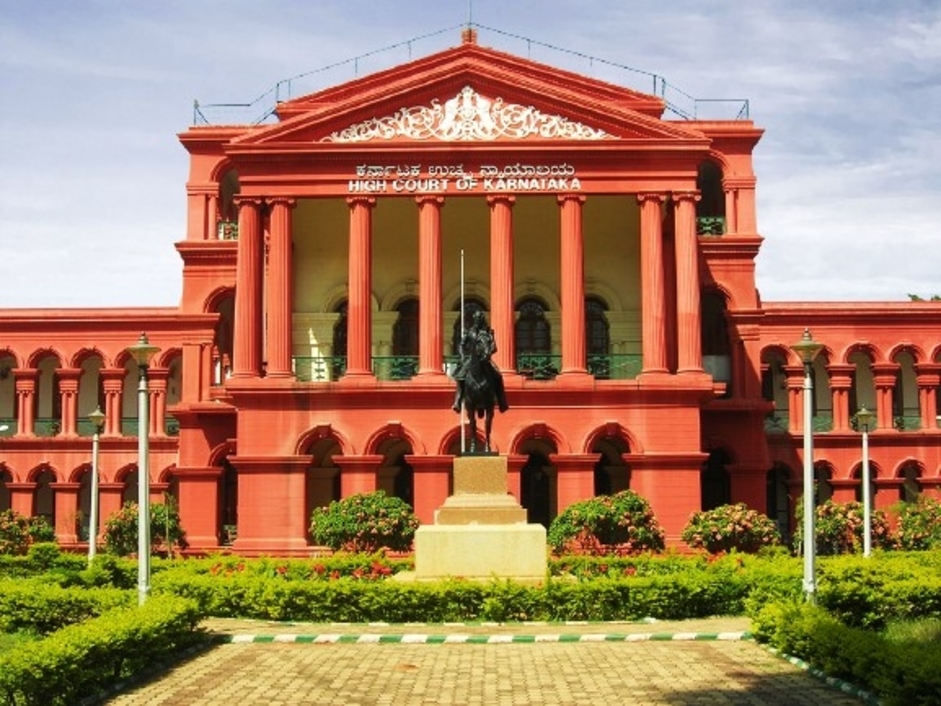Karnataka HC strikes down certain provisions of Karnataka Police (Amendment) Act, 2021 which criminalized playing or facilitating online games

Read Judgment: All India Gaming Federation V. State of Karnataka
Pankaj Bajpai
Bengaluru, February 17, 2022: The Karnataka High Court has recently struck down the provisions of Sections 2, 3, 6, 8 & 9 of the Karnataka Police (Amendment) Act, 2021 and declared them to be ultra vires the Constitution of India in their entirety.
A Division Bench of Chief Justice Ritu Raj Awasthi and Justice Krishna S. Dixit However made it clear that the consequences of striking down of the subject provisions of the Karnataka Police (Amendment) Act 2021 shall not be construed to prevent an appropriate legislation being brought about concerning the subject i.e., ‘Betting & gambling’ in accordance with provisions of the Constitution.
The observation came pursuant to a petition challenging the validity of the Karnataka Act No.28 of 2021 (Amendment Act) whereby the Karnataka Police Act, 1963 (Principal Act) has been amended resulting into criminalization of playing or facilitating online games. As per the Amendment Act, all forms of wagering or betting, including in the form of tokens valued in terms of money paid before or after the issue of it, has been criminalized and electronic means and virtual currency, electronic transfer of funds in connection with any game of ‘chance’, has been banned.
Opposing such provision, the petitioner’s counsel contended that there is a distinction between Game of chance and game of skill, as game of chance alone can be regulated to the point of banning by state authorities, whereas, the state governments have no jurisdiction to ban games of skill. It was also argued that the object of the Amendment Act was to stop game of chance and gambling. However, in that process, treating a game of skill under the same head was arbitrary.
On the other hand, counsel for the State submitted that the Amendment act is a social legislation whose object is to prohibit activity which is injurious to public health and order. It was submitted that the state government has the legislative competence to enact the law and what the State government is regulating, is betting or organized betting.
After considering the submissions, the High Court quoted the decision of Supreme Court in the case of Shayara Bano vs. Union Of India, (2017) 9 SCC 1, wherein it was observed that the impugned legislative action that has clamped an absolute embargo on all games of skill defies the principle of proportionality and is far excessive in nature and therefore violates Article 14 of the Constitution on the ground of manifest arbitrariness.
“The expression “pure game of skill” as employed in legislations of the kind i.e., Section 176 of the Principal Act has been judicially construed to be “mere skill” and that the games mainly & preponderantly involving skill, fall into this class. The expanded meaning of ‘gaming’ under Section 2(7) as amended, broods through the entirety of the Amendment Act, which paints ‘games of skill’ and ‘games of chance’ with the same brush. However, Section 176 of the Principal Act even post amendment continues to maintain the distinction between these two classes of games”, added the Division Bench.
Accordingly, the High Court issued a writ of Mandamus restraining the respondents (State Government) from interfering with the online gaming business and allied activities of the petitioners who are associated with online gaming in one or the other way.
Sign up for our weekly newsletter to stay up to date on our product, events featured blog, special offer and all of the exciting things that take place here at Legitquest.




Add a Comment